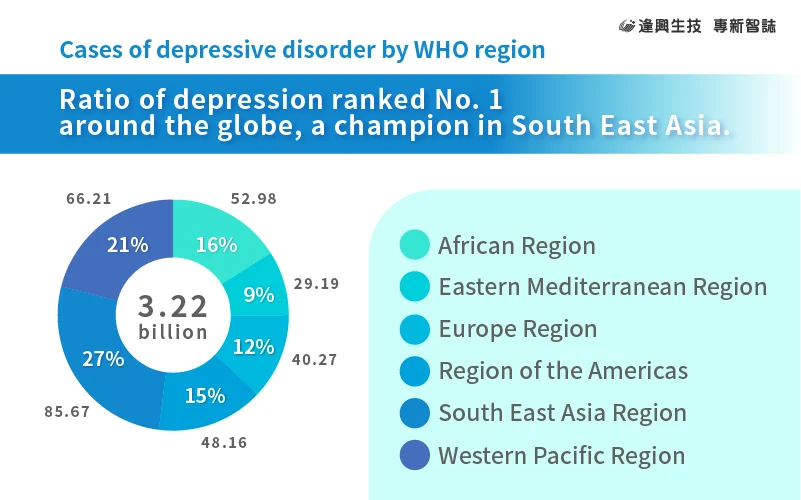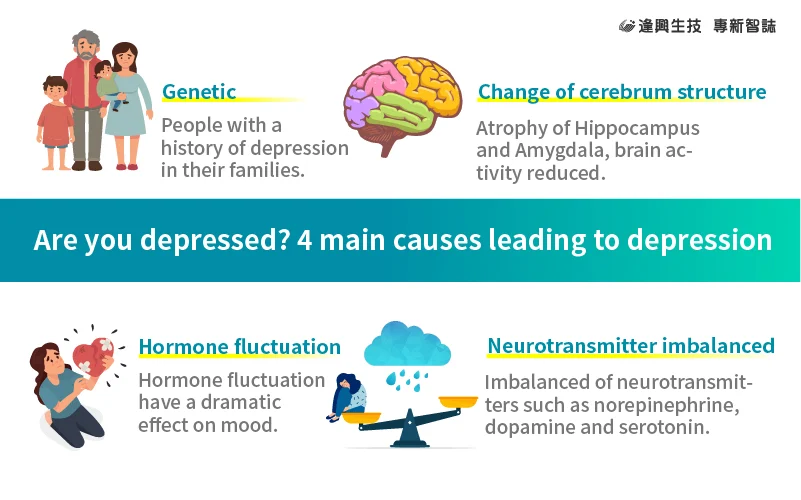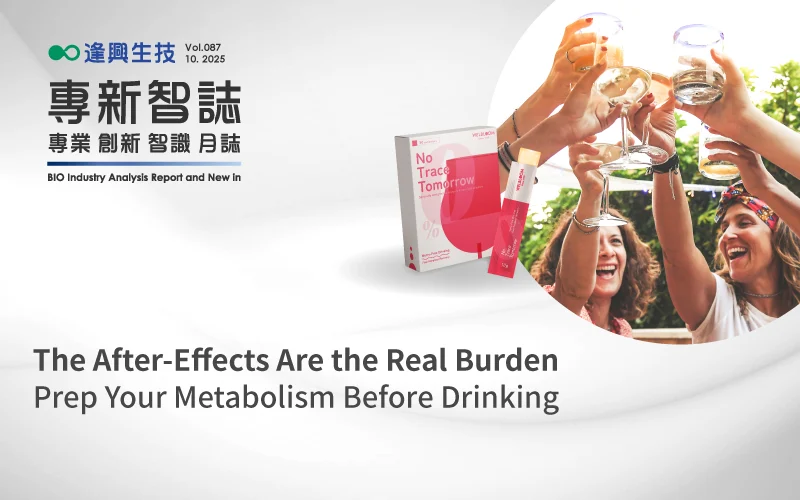
Vol.19-Face Up To The Mental Disorder That Should Not Be Neglected – Depression-Part One

[et_pb_section fb_built=”1″ _builder_version=”4.4.1″ global_colors_info=”{}”][et_pb_row _builder_version=”4.4.1″ global_colors_info=”{}”][et_pb_column type=”4_4″ _builder_version=”4.4.1″ global_colors_info=”{}”][et_pb_text content_tablet=”” content_phone=”
Understand Depression – The Storm of Feeling Blue Since the Ancient Times
Many people still consider depression as an emotional state that the problems are caused by high-stress lifestyle in modern society. Depression is then perceived as the Disease of Modern Civilization. Many people have misconception about the patients with depression, thinking that they are just feeling down, overthinking, or making a fuss over nothing. Most expect to comfort the patients like how they would normally the others, such as telling them to look on the bright side and just get over it and tend to underestimate the symptoms, thinking that them often feeling frustrated over tiny matters is a sign of low stress tolerance. The individuals with depression might even be blamed for their depressive behaviors and forced to cheer up at times, which actually makes the condition worse. Depression is more than just feeling down. It is truly one mental disorder usually caused by brain abnormalities.
Depression is a mental disorder that is certainly not new. The later generations believe that it already took place in 340 BC when Qu Yuan, the minister for the State of Chu, committed suicide by drowning himself in the river due to depression. In 400 BC, Hippocrates, an outstanding physician of ancient Greece once pointed out that the feelings of fear and despair lasting for a long period of time indicates a sign of neurotic depression. On the other hand, depression occurred during the Renaissance in Europe as well. The doctors and the priest, Bode, at that time believed that the “Evil Black Bile” was the cause of all these symptoms such as persistent fear, physical and psychological discomfort and uneasiness, and overflowing negative thoughts. Ironically, countless excellent literary and artistic works were produced by the depressed artists such as the well-known philosopher, Jean Jacques Rousseau.
” content_last_edited=”on|phone” _builder_version=”4.9.4″ global_colors_info=”{}”]
Understand Depression – The Storm of Feeling Blue Since the Ancient Times
Many people still consider depression as an emotional state that problems are caused by a high-stress lifestyle in modern society. Depression is then perceived as the Disease of Modern Civilization. Many people have misconceptions about patients with depression, thinking that they are just feeling down, overthinking, or making a fuss over nothing. Most expect to comfort the patients like how they would normally the others, such as telling them to look on the bright side and just get over it and tend to underestimate the symptoms, thinking that them often feeling frustrated over tiny matters is a sign of low-stress tolerance. The individuals with depression might even be blamed for their depressive behaviors and forced to cheer up at times, which actually makes the condition worse. Depression is more than just feeling down. It is truly one mental disorder usually caused by brain abnormalities.
Depression is a mental disorder that is certainly not new. The later generations believe that it already took place in 340 BC when Qu Yuan, the minister for the State of Chu, committed suicide by drowning himself in the river due to depression. In 400 BC, Hippocrates, an outstanding physician of ancient Greece once pointed out that the feelings of fear and despair lasting for a long period of time indicates a sign of neurotic depression. On the other hand, depression occurred during the Renaissance in Europe as well. The doctors and the priest, Bode, at that time believed that the “Evil Black Bile” was the cause of all these symptoms such as persistent fear, physical and psychological discomfort, and uneasiness, and overflowing negative thoughts. Ironically, countless excellent literary and artistic works were produced by depressed artists such as the well-known philosopher, Jean Jacques Rousseau.
[/et_pb_text][et_pb_text content_tablet=”” content_phone=”
Depression was already regarded as a mental disorder at that moment and the causes were considered to be an imbalance in the body’s internal system, especially an excess of black bile. Patients had to alleviate the symptoms through various medical and religious therapies.
Nowadays, depression is one the rise. Many well-known celebrities such as Marilyn Monroe, Robin Williams, and the Hong Kong singer, Leslie Cheung committed suicide due to depression. World Health Organization predicted that the world’s top three devastating diseases by 2020 will be cardiovascular disease, depression, and AIDS. Depression ranks right after cardiovascular disease as the second leading cause of disability and social burden, which is a mental health problem that should no longer be ignored. According to the statistics reported by WHO in 2017, more than 320 million people worldwide were suffering from depression. Depression is also a major contributor to suicide deaths, which number was greater than 800 thousand per year. However, less than half seek medical treatment and the rate of patients with depression seeking medical help is even lower than 30 percent in the low-income countries. Among the total number of patients with depression across the globe, nearly half live in Asian and Pacific regions with these two regions having larger population respectively. Therefore, depression is an issue needed to face up to, regardless of whether the country is developing or developed. All the individuals suffering from depression around the world are sharing another tendency in common, which the prevalence is higher in women possibly because of their lifestyle and hormone fluctuations.
” content_last_edited=”on|phone” _builder_version=”4.9.4″ global_colors_info=”{}”]
Depression was already regarded as a mental disorder at that moment and the causes were considered to be an imbalance in the body’s internal system, especially an excess of black bile. Patients had to alleviate the symptoms through various medical and religious therapies.
Nowadays, depression is on the rise. Many well-known celebrities such as Marilyn Monroe, Robin Williams, and the Hong Kong singer, Leslie Cheung committed suicide due to depression. World Health Organization predicted that the world’s top three devastating diseases by 2020 will be cardiovascular disease, depression, and AIDS. Depression ranks right after cardiovascular disease as the second leading cause of disability and social burden, which is a mental health problem that should no longer be ignored. According to the statistics reported by WHO in 2017, more than 320 million people worldwide were suffering from depression. Depression is also a major contributor to suicide deaths, which number was greater than 800 thousand per year. However, less than half seek medical treatment and the rate of patients with depression seeking medical help is even lower than 30 percent in the low-income countries. Among the total number of patients with depression across the globe, nearly half live in Asian and Pacific regions with these two regions having larger populations respectively. Therefore, depression is an issue needed to face up to, regardless of whether the country is developing or developed. All the individuals suffering from depression around the world are sharing another tendency in common, which the prevalence is higher in women possibly because of their lifestyle and hormone fluctuations.
[/et_pb_text][et_pb_text content_tablet=”” content_phone=”
Depression was already regarded as a mental disorder at that moment and the causes were considered to be an imbalance in the body’s internal system, especially an excess of black bile. Patients had to alleviate the symptoms through various medical and religious therapies.
Nowadays, depression is one the rise. Many well-known celebrities such as Marilyn Monroe, Robin Williams, and the Hong Kong singer, Leslie Cheung committed suicide due to depression. World Health Organization predicted that the world’s top three devastating diseases by 2020 will be cardiovascular disease, depression, and AIDS. Depression ranks right after cardiovascular disease as the second leading cause of disability and social burden, which is a mental health problem that should no longer be ignored. According to the statistics reported by WHO in 2017, more than 320 million people worldwide were suffering from depression. Depression is also a major contributor to suicide deaths, which number was greater than 800 thousand per year. However, less than half seek medical treatment and the rate of patients with depression seeking medical help is even lower than 30 percent in the low-income countries. Among the total number of patients with depression across the globe, nearly half live in Asian and Pacific regions with these two regions having larger population respectively. Therefore, depression is an issue needed to face up to, regardless of whether the country is developing or developed. All the individuals suffering from depression around the world are sharing another tendency in common, which the prevalence is higher in women possibly because of their lifestyle and hormone fluctuations.
” content_last_edited=”on|phone” _builder_version=”4.9.4″ global_colors_info=”{}”]
Reference resources:
Depression
https://ourworldindata.org/mental-health#depression
The History of Depression Accounts, Treatments, and Beliefs Through the Ages
https://www.verywellmind.com/who-discovered-depression-1066770
Sacred psychiatry in ancient Greece
https://www.ncbi.nlm.nih.gov/pmc/articles/PMC3991897/
[/et_pb_text][/et_pb_column][/et_pb_row][et_pb_row _builder_version=”4.4.1″ global_colors_info=”{}”][et_pb_column type=”4_4″ _builder_version=”4.4.1″ global_colors_info=”{}”][et_pb_text content_tablet=”” content_phone=”

Biotechnology Industry Study Center, Taiwan Institute of Economic Research guesstimated that the global antidepressant market will reach USD 9.3 Billion by 2020.
According to the statistics provided by Ministry of Health and Welfare, the number of individuals seeking medical treatment due to depression increases every year. In Taiwan, more than 1.3 million patients were taking antidepressants by 2018 and the number of women was still far higher than men. Even so, the number of individuals seeking medical treatment was still much lower than the 2 million patients estimated by Ministry of Health and Welfare, indicating that many individuals diagnosed with depression are still not obtaining medical treatment.
” content_last_edited=”on|phone” _builder_version=”4.9.4″ global_colors_info=”{}”]

Biotechnology Industry Study Center, Taiwan Institute of Economic Research guesstimated that the global antidepressant market will reach USD 9.3 Billion by 2020.
According to the statistics provided by the Ministry of Health and Welfare, the number of individuals seeking medical treatment due to depression increases every year. In Taiwan, more than 1.3 million patients were taking antidepressants by 2018 and the number of women was still far higher than men. Even so, the number of individuals seeking medical treatment was still much lower than the 2 million patients estimated by the Ministry of Health and Welfare, indicating that many individuals diagnosed with depression are still not obtaining medical treatment.
[/et_pb_text][et_pb_image src=”https://wel-en.wp-mak.ing/wp-content/uploads/0120_第19期智庫_憂鬱症_英_市場-02.webp” _builder_version=”4.4.1″ global_colors_info=”{}”][/et_pb_image][/et_pb_column][/et_pb_row][et_pb_row _builder_version=”4.4.1″ global_colors_info=”{}”][et_pb_column type=”4_4″ _builder_version=”4.4.1″ global_colors_info=”{}”][et_pb_text content_tablet=”” content_phone=”
Depression is slowly receiving more attention at the international level and we need to work on erasing the prejudice against patients with depression, getting to know the causes of depression and really seeing depression as a real mental disorder, taking care of ourselves in a way to prevent depression, and being brave enough to seek medical treatment and follow up when having depression.
Face Up To Depression – Your Long-Lasting Sadness Is A Mental Disorder
Depression is often stigmatized and the most people think that the individuals with depression tend to be extremely vulnerable, dangerous, or possibly hurting themselves. When it comes to depression, people may blame or judge the patients, which make the patients want to hide their conditions from others. They are afraid of being labeled and leaving bad impressions to others, but not seeking medical help because of these reasons would only worsen the condition. To be honest, depression is just a health problem like imbalanced immune system or gastric ulcer and instead of feeling ashamed about it, we should face it with the right mindset.
” content_last_edited=”on|phone” _builder_version=”4.9.4″ global_colors_info=”{}”]
Depression is slowly receiving more attention at the international level and we need to work on erasing the prejudice against patients with depression, getting to know the causes of depression and really seeing depression as a real mental disorder, taking care of ourselves in a way to prevent depression, and being brave enough to seek medical treatment and follow up when having depression.
Reference resources:
Treatment of Major Depressive Episode Among Adults
https://www.nimh.nih.gov/health/statistics/major-depression.shtml
Depression
https://www.who.int/news-room/fact-sheets/detail/depression
Face Up To Depression – Your Long-Lasting Sadness Is A Mental Disorder
Depression is often stigmatized and most people think that individuals with depression tend to be extremely vulnerable, dangerous, or possibly hurting themselves. When it comes to depression, people may blame or judge the patients, which makes the patients want to hide their conditions from others. They are afraid of being labeled and leaving bad impressions to others, but not seeking medical help because of these reasons would only worsen the condition. To be honest, depression is just a health problem like an imbalanced immune system or gastric ulcer and instead of feeling ashamed about it, we should face it with the right mindset.
[/et_pb_text][et_pb_text _builder_version=”4.9.4″ global_colors_info=”{}”]

Many factors contribute to depression and the four most common causes are listed in the following section:
- Genetic Factors: Individuals having a family history of depression are at higher risk for depression than the ones who do not.
- Brain Structure Alterations: The brain region of individuals with depression is different than the others. For instance, Atrophy of the Hippocampus and Amygdala decreased brain activity, and degeneration of brain functions could all lead to depression.
- Hormone Fluctuations: It has been suggested that women are more likely to develop depression because of hormones. Menstruation, pregnancy, and menopause are the periods that women experience the most extreme hormonal changes which have a huge impact on emotions. Some believe that normal hormonal changes trigger depression when others believe that it indirectly triggers depression by stimulating the risk factors that already exist in the body. Either way, there is a definite association between hormonal changes and depression.
- The Imbalance of Neurotransmitters: This is by far the most acceptable explanation. There are many types of neurotransmitters in the brain and mood disorders would happen once the neurotransmitter imbalance occurs. The three most common neurotransmitters found to play a role in mood regulation are norepinephrine, dopamine, and serotonin. norepinephrine makes people stay motivated and helps the body react to stress. However, excessive release of norepinephrine promotes anxiety and too low norepinephrine creates feelings of lethargy. Dopamine is also known as the happy chemical and dopamine deficiency may result in low physical energy, low sexual desire, and sadness. Serotonin is another important factor for mood regulation, which affects norepinephrine and dopamine and helps relaxation. Lack of serotonin not only makes people frustrated and emotionally unstable but also affects sleep quality. In addition, many factors such as poor living environment, irregular daily routine, interpersonal tension, other diseases and pressure, and drug or alcohol abuse could all lead to depression.
Reference resources:
Causes of Depression
https://www.webmd.com/depression/guide/causes-depression
Everything You Need to Know About Depression
https://www.healthline.com/health/depression
[/et_pb_text][et_pb_text _builder_version=”4.9.4″ global_colors_info=”{}”]
Depression is treatable and even preventable through the right mindset and building some life-changing habits may help. For instance, exercising and listening to music both help stimulate the production of dopamine. Constantly staying in a cold and dark environment could affect metabolism and physiological functions; therefore, frequent exposure to sunlight helps prevent depression. Getting plenty of restful sleep could help relax the brain and the body. In order to prevent depression, try to reduce external stressors, self-adjust whenever needed, learn to relax, and stay away from the risk factors that may trigger depression. Taking nutritional supplements could promote relaxation, eliminate anxiety, produce more neurotransmitters, and maintain the happy chemicals in the body, which allows you to stay happy and healthy.
[/et_pb_text][/et_pb_column][/et_pb_row][et_pb_row _builder_version=”4.4.1″ global_colors_info=”{}”][et_pb_column type=”4_4″ _builder_version=”4.4.1″ global_colors_info=”{}”][et_pb_text _builder_version=”4.9.4″ global_colors_info=”{}”]
Stay Happy And Healthy – Prevent Depression Through Nutritional Supplements
There are two main aspects regarding the prevention of depression through the intake of nutritional supplements. The first one is to reduce stress in order to stay calm and lower the chances of developing depression. The other is to balance the neurotransmitters in the brain to maintain normal physiological functions and strengthen the resistance to depression.
[/et_pb_text][et_pb_text _builder_version=”4.9.4″ global_colors_info=”{}”]
To know more information, Please contact us.
or please send the email to [email protected], and we will serve you with our full attendance.
Reading Vol.19 – Special Edition – Past Two supplement industry report: Vol.19-Face Up To The Mental Disorder That Should Not Be Neglected – Depression-part two
Reading previous supplement industry report: Vol18 : Demystify gut health by Wel-Bloom Bio-Tech Leading you to the perfect road of life
[/et_pb_text][/et_pb_column][/et_pb_row][/et_pb_section]

Wel-Bloom Bio-Tech
Leader of Jelly Supplement
-
Phone +886-2-33225555
-
Fax +886-2-3322-5966
-
Email [email protected]
-
LINE Official Account @welbloom
-
LinkedIn Welbloom BioTech
Contact Us
We will reply them as soon as possible.


